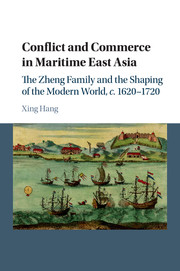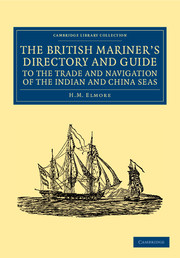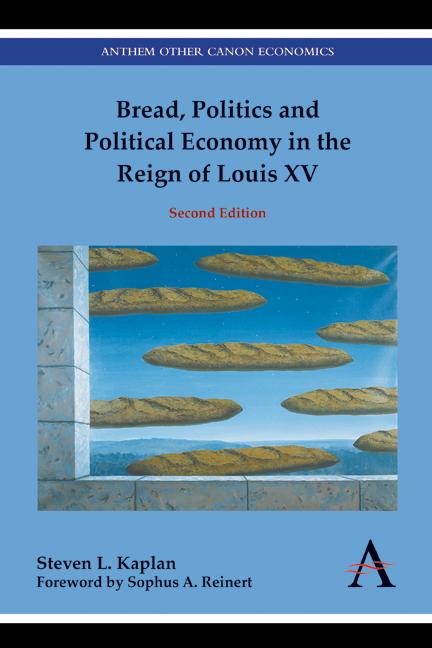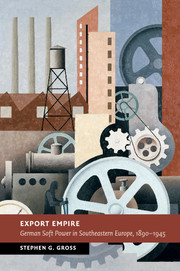Refine search
Actions for selected content:
26946 results in Economic history
Roaring Metropolis: Businessmen's Campaign for a Civic Welfare State. By Daniel Amsterdam . Philadelphia: University of Pennsylvania Press, 2016. 230 pp. Illustrations, photographs, figures, tables, notes, index. Cloth, $45.00. ISBN: 978-0-8122-4810-4.
-
- Journal:
- Business History Review / Volume 90 / Issue 4 / Winter 2016
- Published online by Cambridge University Press:
- 16 March 2017, pp. 790-793
- Print publication:
- Winter 2016
-
- Article
- Export citation
Executive Burnout
-
- Journal:
- Business History Review / Volume 90 / Issue 4 / Winter 2016
- Published online by Cambridge University Press:
- 16 March 2017, pp. 701-708
- Print publication:
- Winter 2016
-
- Article
- Export citation
Trade and Empire in Early Nineteenth-Century Southeast Asia: Gillian Maclaine and His Business Network. By G. Roger Knight . Woodbridge, U.K.: Boydell Press, 2015. xiv + 193 pp. Maps, bibliography, index. Cloth, $115.00. ISBN: 978-1-78327-069-9.
-
- Journal:
- Business History Review / Volume 90 / Issue 4 / Winter 2016
- Published online by Cambridge University Press:
- 16 March 2017, pp. 819-822
- Print publication:
- Winter 2016
-
- Article
- Export citation
Announcements
-
- Journal:
- Business History Review / Volume 90 / Issue 4 / Winter 2016
- Published online by Cambridge University Press:
- 16 March 2017, pp. 751-754
- Print publication:
- Winter 2016
-
- Article
-
- You have access
- HTML
- Export citation
Panic at the Pump: The Energy Crisis and the Transformation of American Politics in the 1970s. By Meg Jacobs . New York: Hill and Wang, 2016. viii + 373 pp. Photographs, illustrations, notes, index. Cloth, $35.00. ISBN: 978-0-8090-5847-1.
-
- Journal:
- Business History Review / Volume 90 / Issue 4 / Winter 2016
- Published online by Cambridge University Press:
- 16 March 2017, pp. 769-771
- Print publication:
- Winter 2016
-
- Article
- Export citation
Evolving Ideas about Business Strategy
-
- Journal:
- Business History Review / Volume 90 / Issue 4 / Winter 2016
- Published online by Cambridge University Press:
- 09 December 2016, pp. 727-749
- Print publication:
- Winter 2016
-
- Article
-
- You have access
- HTML
- Export citation
Introduction: From Management Consultant to Psychological Counsel
-
- Journal:
- Business History Review / Volume 90 / Issue 4 / Winter 2016
- Published online by Cambridge University Press:
- 16 March 2017, pp. 691-694
- Print publication:
- Winter 2016
-
- Article
- Export citation
The Cotton Kings: Capitalism and Corruption in Turn-of-the-Century New York and New Orleans. By Bruce E. Bakerand Barbara Hahn . New York: Oxford University Press, 2016. xi + 214 pp. Photographs, illustrations, tables, glossary, bibliography, notes, index. Cloth, $29.95. ISBN: 978-0-19-021165-3.
-
- Journal:
- Business History Review / Volume 90 / Issue 4 / Winter 2016
- Published online by Cambridge University Press:
- 16 March 2017, pp. 785-788
- Print publication:
- Winter 2016
-
- Article
- Export citation
The Rise and Fall of the First Government-Sponsored Enterprise: The Federal Land Banks, 1916–1932
-
- Journal:
- Business History Review / Volume 90 / Issue 4 / Winter 2016
- Published online by Cambridge University Press:
- 06 February 2017, pp. 623-645
- Print publication:
- Winter 2016
-
- Article
-
- You have access
- HTML
- Export citation
Drive! Henry Ford, George Selden, and the Race to Invent the Auto Age. By Lawrence Goldstone . New York: Ballantine Books, 2016. 372 pp. Photographs, illustrations, bibliography, notes, index. Cloth, $28.00. ISBN: 978-0-553-39418-4.
-
- Journal:
- Business History Review / Volume 90 / Issue 4 / Winter 2016
- Published online by Cambridge University Press:
- 16 March 2017, pp. 801-803
- Print publication:
- Winter 2016
-
- Article
- Export citation
California Fair Trade: Antitrust and the Politics of “Fairness” in U.S. Competition Policy
-
- Journal:
- Business History Review / Volume 90 / Issue 1 / Spring 2016
- Published online by Cambridge University Press:
- 21 December 2015, pp. 31-56
- Print publication:
- Spring 2016
-
- Article
-
- You have access
- HTML
- Export citation

Conflict and Commerce in Maritime East Asia
- The Zheng Family and the Shaping of the Modern World, c.1620–1720
-
- Published online:
- 18 December 2015
- Print publication:
- 05 January 2016
Ups and downs of central bank independence from the Great Inflation to the Great Recession: theory, institutions and empirics
-
- Journal:
- Financial History Review / Volume 22 / Issue 3 / December 2015
- Published online by Cambridge University Press:
- 17 December 2015, pp. 259-289
-
- Article
- Export citation
ECONOMIC DEVELOPMENT IN AFRICA AND EUROPE: RECIPROCAL COMPARISONS*
-
- Journal:
- Revista de Historia Economica - Journal of Iberian and Latin American Economic History / Volume 34 / Issue 1 / March 2016
- Published online by Cambridge University Press:
- 16 December 2015, pp. 11-37
- Print publication:
- March 2016
-
- Article
- Export citation

The British Mariner's Directory and Guide to the Trade and Navigation of the Indian and China Seas
- With an Account of the Trade, Mercantile Habits, Manners, and Customs, of the Natives
-
- Published online:
- 05 December 2015
- Print publication:
- 15 November 2012
- First published in:
- 1802

Bread, Politics and Political Economy in the Reign of Louis XV
-
- Published by:
- Anthem Press
- Published online:
- 05 December 2015
- Print publication:
- 15 September 2015
-
- Book
- Export citation

Export Empire
- German Soft Power in Southeastern Europe, 1890–1945
-
- Published online:
- 05 December 2015
- Print publication:
- 05 January 2016

The Rise of the Global Company
- Multinationals and the Making of the Modern World
-
- Published online:
- 05 December 2015
- Print publication:
- 07 January 2016

On Commerce and Usury (1524)
-
- Published by:
- Anthem Press
- Published online:
- 05 December 2015
- Print publication:
- 15 September 2015
Tweaking financial instruments: bills obligatory in sixteenth-century Antwerp
-
- Journal:
- Financial History Review / Volume 22 / Issue 3 / December 2015
- Published online by Cambridge University Press:
- 01 December 2015, pp. 337-361
-
- Article
- Export citation
